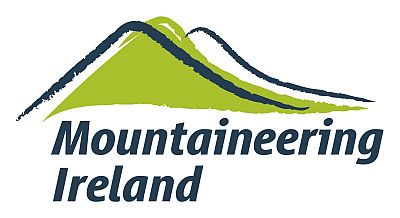26 March 2018
Mountain Skills 1 In Glendalough, Wicklow Mountains, This Easter Weekend
One, possibly two, places left available on our Wicklow Mountain Skills 1 this Sat 31st Mar & Sun 1st Apr. More details here: http://www.outdoorsireland.com/mountainskills.php. This two day, beginner friendly, course is recognised/certified by Mountaineering Ireland.
To book please contact Nathan on 086 860 45 63.
20 March 2018
Mountain Skills 2 In Killarney This Weekend
Click Here For More Details
Click Here For Course Syllabus
Over the two days you will cover navigation/map reading techniques, compass skills, night navigation, steep ground skills, route planning and emergency procedures.
To Book A Place Please Contact Nathan:
info@outdoorsireland.com
086 860 45 63
6 March 2018
Naishmith's Rule - Five Different Mountain Travel Speeds
Naishmith's Rule: You are generally told that the average hill walker does a speed of 5km per hour on the average hillside. For flat or downhill just stick to that rule. For uphill add one extra minute for each uphill contour climbed.
However no one says you need to stick to that 5km per hour. For different mountain conditions, different weather conditions, different navigation tools (such as following a compass bearing), your walking speed will increase or decrease. Generally it will decrease!
The key is to know what different walking speeds feel like and to know what speed you get in various situations; for example coming downhill on a forest track you may get 6km per hour; night navigation over boulder fields, following a compass bearing, you may get 2km per hour.
Here are some examples.
2KM Per Hour
Example: Slow tricky ground, such as boulder fields, at night and following a compass bearing
2km = 60 mins
1km = 30 mins
500m = 15 mins
100m = 3 mins
3KM Per Hour
Example: Careful navigation, either by day or by night. You may often hit this speed when navigating in misty conditions by day
3km = 60 mins
1km = 20 mins
500m = 10 mins
100m = 2 mins
4KM Per Hour
Example: This can often be a more realistic mountain speed, allowing navigation to happen, and allowing for a pace that lessens sweating and dehydration
4km = 60 mins
1km = 15 mins
500m = 7.5 mins
100m = 1.5 mins
5KM Per Hour
Example: This is the 'official' Naishmith's Rule taught on Mountain Skills Courses. 4km per hour can often be more realistic for proper mountain terrain and mountain navigation
5km = 60 mins
1km = 12 mins
500m = 6 mins
100m = 1.2 mins
6KM Per Hour
Example: This is a decent 'fit and fast' speed, achieved on flat or downhill moor-type friendly ground, or coming down tracks
6km = 60 mins
1km = 10 mins
500m = 5 mins
100m = 1 min
These are just my own ideas and suggestions from being in the mountains. The main thing to take from this is - you do not need to stick to 5km per hour - come up with your own speeds for different situations - and get to know them.
A trick when starting your hill walking career is to have these written in permanent pen on the back of your map.
However no one says you need to stick to that 5km per hour. For different mountain conditions, different weather conditions, different navigation tools (such as following a compass bearing), your walking speed will increase or decrease. Generally it will decrease!
The key is to know what different walking speeds feel like and to know what speed you get in various situations; for example coming downhill on a forest track you may get 6km per hour; night navigation over boulder fields, following a compass bearing, you may get 2km per hour.
Here are some examples.
2KM Per Hour
Example: Slow tricky ground, such as boulder fields, at night and following a compass bearing
2km = 60 mins
1km = 30 mins
500m = 15 mins
100m = 3 mins
3KM Per Hour
Example: Careful navigation, either by day or by night. You may often hit this speed when navigating in misty conditions by day
3km = 60 mins
1km = 20 mins
500m = 10 mins
100m = 2 mins
4KM Per Hour
Example: This can often be a more realistic mountain speed, allowing navigation to happen, and allowing for a pace that lessens sweating and dehydration
4km = 60 mins
1km = 15 mins
500m = 7.5 mins
100m = 1.5 mins
5KM Per Hour
Example: This is the 'official' Naishmith's Rule taught on Mountain Skills Courses. 4km per hour can often be more realistic for proper mountain terrain and mountain navigation
5km = 60 mins
1km = 12 mins
500m = 6 mins
100m = 1.2 mins
6KM Per Hour
Example: This is a decent 'fit and fast' speed, achieved on flat or downhill moor-type friendly ground, or coming down tracks
6km = 60 mins
1km = 10 mins
500m = 5 mins
100m = 1 min
These are just my own ideas and suggestions from being in the mountains. The main thing to take from this is - you do not need to stick to 5km per hour - come up with your own speeds for different situations - and get to know them.
A trick when starting your hill walking career is to have these written in permanent pen on the back of your map.
Subscribe to:
Posts (Atom)














